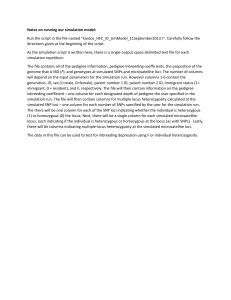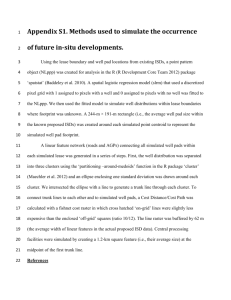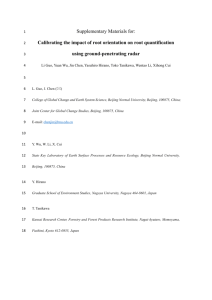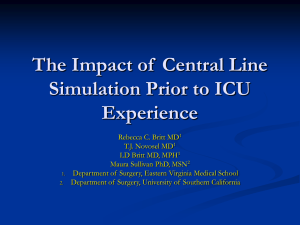Background
advertisement
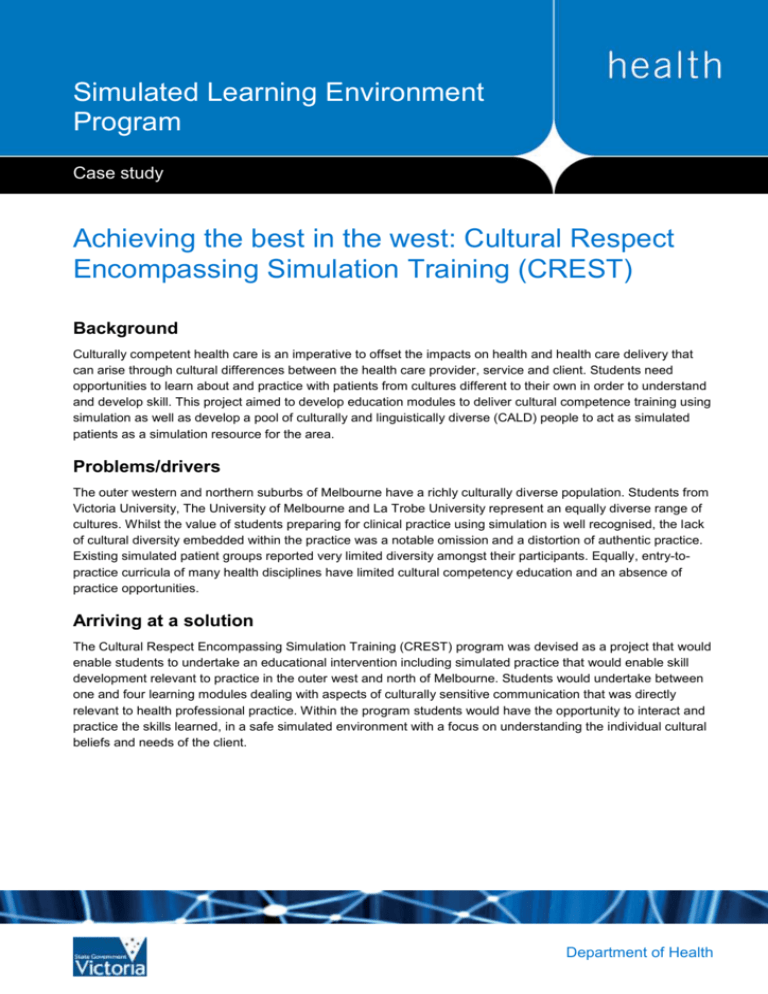
Simulated Learning Environment Program Case study Achieving the best in the west: Cultural Respect Encompassing Simulation Training (CREST) Background Culturally competent health care is an imperative to offset the impacts on health and health care delivery that can arise through cultural differences between the health care provider, service and client. Students need opportunities to learn about and practice with patients from cultures different to their own in order to understand and develop skill. This project aimed to develop education modules to deliver cultural competence training using simulation as well as develop a pool of culturally and linguistically diverse (CALD) people to act as simulated patients as a simulation resource for the area. Problems/drivers The outer western and northern suburbs of Melbourne have a richly culturally diverse population. Students from Victoria University, The University of Melbourne and La Trobe University represent an equally diverse range of cultures. Whilst the value of students preparing for clinical practice using simulation is well recognised, the lack of cultural diversity embedded within the practice was a notable omission and a distortion of authentic practice. Existing simulated patient groups reported very limited diversity amongst their participants. Equally, entry-topractice curricula of many health disciplines have limited cultural competency education and an absence of practice opportunities. Arriving at a solution The Cultural Respect Encompassing Simulation Training (CREST) program was devised as a project that would enable students to undertake an educational intervention including simulated practice that would enable skill development relevant to practice in the outer west and north of Melbourne. Students would undertake between one and four learning modules dealing with aspects of culturally sensitive communication that was directly relevant to health professional practice. Within the program students would have the opportunity to interact and practice the skills learned, in a safe simulated environment with a focus on understanding the individual cultural beliefs and needs of the client. Department of Health Implementation process Using an expert advisory group and resources purchased from the Centre for Ethnicity and Health under the capital funding element of the project, the four education modules were developed. The essential skills of culturally sensitive communication were developed supported by a framework that would be accessible to students. Case studies were developed with input from all of the identified health disciplines being nursing, medicine, social work, physiotherapy and paramedics to identify relevant and authentic issues for inclusion. Simulation scenarios were further co-constructed with the simulated patients to derive real and accurate character development. The program was implemented across the five disciplines in three Universities as well as at community and acute inpatient centres in uni-disciplinary as well as multidisciplinary and interprofessional groups. Additionally variations in learner group size and scheduled teaching duration were experienced and the program was evaluated as flexible and able to achieve the desired student learning outcomes across all formats and groups. An interactive website was developed to enable self-directed or facilitated access to the CREST materials regardless of budget or location using pre filmed video vignettes of the simulation scenarios. The website https://edtech.le.unimelb.edu.au/login/crest/ finalises an important and valuable collection of resources in cultural sensitivity education for health professional students and tutors. Outcomes The CREST program has been delivered face-to-face to 1709 students since its inception. An evaluation framework and tools were developed based upon the Campinha-Bacote model of cultural competency (1999). Students, tutors and simulated patients have all rated the program as effective while pre and post testing of students revealed significant change in those students self-reported competency, skill, awareness and knowledge. Most importantly students reported changes in cultural desire which auger well for future work practice. Barriers Strong demand for the project over a relatively short implementation period meant that disciplines outside of the core discipline groups could not be accommodated in the implementation phase. The development of online resources will enable those groups to share the resources with their students as either facilitator mediated content or set as self-directed learning. Additionally the pool of thirty simulated patients was stretched covering all requested classes. This was exacerbated by university teaching periods and discipline groups with large numbers necessitating many repeat classes. Careful timetabling and negotiation of delivery weeks enabled all sessions to be delivered however an expansion of the SP group is needed to overcome contingencies such as sickness and recreation. Future directions The CREST program is a suite of resources that can be used by health discipline entry-to-practice programs to deliver information and practice in culturally competent communication. We anticipate that CREST will become a curriculum staple across the discipline groups who have delivered the program in 2013. Whilst the cost of the simulated patient must be addressed this is very much in keeping with other teaching and learning resources and is readily facilitated through the CREST website where simulated patients can be contracted for both CREST simulations as well as other simulated learning events. All resources for tutors are also located on the website. Removing barriers of simulation development and access to resources are potent aids to sustainability of this program. Page 2 Department of Health Further information Karen Livesay Simulation Coordinator Interprofessional Education Program Victoria University Email: Karen.Livesay@vu.edu.au Telephone: 03 9919 2123 Page 3 Department of Health

